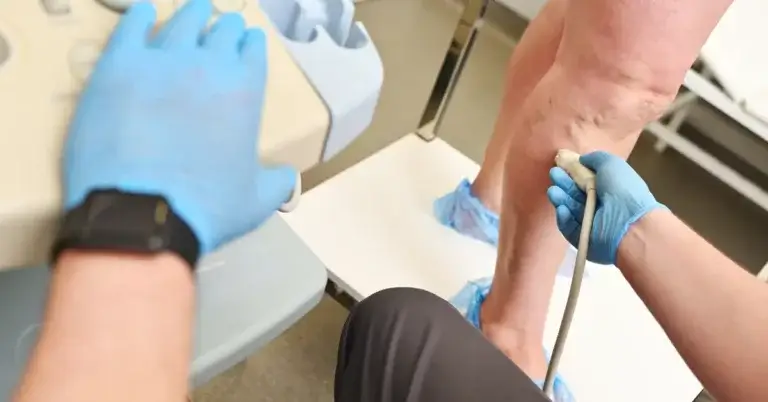Heart disease is a serious and potentially life-threatening condition that affects millions of people around the world. It is the leading cause of death globally, even reaching 17.9 million in 2019.
While many of us are aware of the more commonly recognized signs and symptoms of heart disease, such as chest pain and shortness of breath, there are several other, more sneaky signs that we may not be familiar with. These sneaky signs can often be overlooked or dismissed as minor issues, but they could be early warning signs of a serious heart problem.
1. Chest Pain or Discomfort
Chest pain or discomfort is a well-known symptom of a heart attack, but it can also be a sneaky sign of heart disease. The chest pain associated with heart disease may not always be severe, and it can sometimes feel like a pressure, fullness, or burning sensation in the chest. The pain may also be accompanied by discomfort or pain in other areas of the upper body, such as the arms, jaw, neck, back, or stomach.
It’s important to note that not all chest pain or discomfort is related to heart disease, and it can have a variety of causes, including respiratory infections, muscle strain, and digestive issues. However, if you experience chest pain or discomfort that is persistent, worsening, or accompanied by other symptoms, such as shortness of breath or dizziness, it’s important to seek medical attention immediately.
A healthcare provider can help determine the cause of your chest pain and provide appropriate treatment, whether it is related to heart disease or another condition. It’s always better to err on the side of caution when it comes to chest pain, as early detection and treatment can help prevent serious complications.
2. Shortness of Breath
Shortness of breath is another sneaky sign of heart disease that may not be immediately associated with the heart. It can be caused by a variety of conditions, including lung disease and anemia, but it can also be a sign of heart disease. When the heart is not working properly, it may not be able to pump enough blood to meet the body’s needs, which can lead to shortness of breath during everyday activities, such as climbing stairs or walking.
Shortness of breath can also occur during rest or when lying down, which can be a sign of a more severe heart condition. This symptom may be accompanied by other symptoms, such as fatigue, swelling in the legs or ankles, and coughing or wheezing.
If you experience shortness of breath that is persistent, worsening, or accompanied by other symptoms, it’s important to seek medical attention immediately. A healthcare provider can help determine the cause of your shortness of breath and provide appropriate treatment, whether it is related to heart disease or another condition. Early detection and treatment of heart disease can help prevent serious complications and improve your overall heart health.
3. Irregular Heartbeat
An irregular heartbeat, also known as arrhythmia, is a sneaky sign of heart disease that may not always cause noticeable symptoms. This condition occurs when the electrical signals that regulate the heart’s rhythm are disrupted, causing the heart to beat too fast, too slow, or in an irregular pattern.
While some people with arrhythmia may not experience any symptoms, others may feel palpitations or a fluttering sensation in the chest. In some cases, arrhythmia can also cause fatigue, dizziness, shortness of breath, or chest pain.
It’s important to see a healthcare provider if you suspect you have an irregular heartbeat, as it can increase the risk of more serious heart conditions, such as stroke or heart failure. Your provider may recommend monitoring your heart rhythm or performing tests, such as an electrocardiogram (ECG), to determine the cause of your arrhythmia. Treatment for arrhythmia may include medication, lifestyle changes, or procedures such as cardioversion or ablation to help regulate the heart’s rhythm.
4. Extreme Fatigue
Extreme fatigue is a feeling of tiredness, weakness, or lack of energy that is not relieved by rest and is often a symptom of various medical conditions, including heart disease, diabetes, anemia, thyroid problems, and sleep apnea. People experiencing extreme fatigue may feel physically and mentally exhausted, have difficulty concentrating, and have a decreased interest in activities they previously enjoyed.
In some cases, extreme fatigue can be a warning sign of a more serious medical condition, and individuals experiencing this symptom should seek medical attention. Treatment for extreme fatigue depends on the underlying cause and may include medication, lifestyle changes, and/or medical procedures.
5. Heart Failure
Heart failure is a serious condition that occurs when the heart is unable to pump blood effectively throughout the body. While many people are familiar with some of the more common symptoms of heart failure, such as shortness of breath and swelling in the legs, there are several other sneaky signs that could indicate a problem with your heart.
One sign of heart failure is a persistent cough that is accompanied by white or pink mucus. This is often caused by fluid buildup in the lungs, which can be a result of a weakened heart unable to pump blood effectively. Another sneaky sign of heart failure is feeling constantly fatigued or weak, even after a good night’s sleep. This can occur because the body is not receiving enough blood and oxygen due to a weakened heart.
Other potential signs of heart failure include sudden weight gain, decreased appetite, and difficulty sleeping. If you experience any of these symptoms or stages, it’s important to speak with a healthcare provider, as they may be an early warning sign of heart failure or another heart-related problem.
Other Common Symptoms
In addition to the five sneaky signs of heart disease discussed above, there are several other common symptoms that may indicate an underlying heart problem. These symptoms may include:
- Ankle or leg swelling: This can be a sign of peripheral artery disease, a condition that occurs when the arteries that supply blood to the legs become narrow or blocked.
- Indigestion or stomach discomfort: Sometimes, the symptoms of a heart attack can be mistaken for indigestion or heartburn. This can occur when the heart’s blood flow is reduced, causing pain or discomfort in the upper abdomen or chest.
- Irregular heartbeat: As discussed earlier, an irregular heartbeat or palpitations can be a sign of an underlying heart condition. If you notice a fluttering or racing sensation in your chest, it’s important to speak with your healthcare provider.
- Jaw pain: Jaw pain can be a symptom of a heart attack, particularly in women. If you experience unexplained pain in your jaw or neck, it’s important to seek medical attention.
- Tightness or pressure in the chest: This can be a classic symptom of a heart attack, but it’s important to note that not everyone experiences chest pain during a heart attack. Some people may experience only mild discomfort or pressure in the chest.
If you experience any of these symptoms, it’s important to speak with your healthcare provider to determine the cause and rule out any underlying heart conditions. Your provider may recommend further testing or treatment to help manage your symptoms and improve your overall heart health.
Common Risk Factors for Heart Disease
While heart disease can happen to anyone, certain factors can increase your risk. Understanding these risk factors can help you take steps to reduce your risk of developing heart disease. Here are some of the most common risk factors:
- High blood pressure: When the force of your blood pushing against your artery walls is consistently too high, it can damage your arteries and increase your risk of heart disease.
- High cholesterol: High levels of LDL (“bad”) cholesterol can contribute to the buildup of plaque in your arteries, which can lead to heart disease.
- Smoking: Smoking can damage your blood vessels and increase your risk of atherosclerosis, a condition where plaque builds up in your arteries.
- Diabetes: People with diabetes are at a higher risk of developing heart disease, as high blood sugar levels can damage blood vessels and increase the risk of plaque buildup.
- Family history: If you have a family history of heart disease, you may be at a higher risk of developing the condition.
- Age: As you get older, your risk of developing heart disease increases.
- Physical inactivity: Not getting enough physical activity can contribute to a variety of health problems, including heart disease.
By making lifestyle changes and managing these risk factors, you can help protect your heart health and reduce your risk of developing heart disease.
DrKumo Remote Patient Monitoring for Uncovering Signs of Heart Disease
Sneaky signs of heart disease can often go unnoticed, leading to a delayed diagnosis and treatment. This is where DrKumo remote patient monitoring (RPM) solution comes in. DrKumo provides a highly scalable, continuous, real-time RPM solution that enables patients to manage their health conditions in the comfort of their homes while supporting healthcare providers with real-time intelligence for timely intervention. With DrKumo state-of-the-art, HIPAA-compliant, mobile-enabled, continuous real-time monitoring, and AI/ML engine, patients can easily monitor their symptoms and receive timely medical attention when needed.
DrKumo is a technology leader that revolutionizes the way people access quality healthcare across the world. Their remote patient monitoring solution is designed for chronic disease management, acute care, post-operation, and hospital care at home. DrKumo RPM solution is user-friendly and can be easily accessed through a mobile device, allowing patients to manage their health with ease. The company’s culture is innovative, collaborative, and technology-driven, and they provide effective solutions to both patients and healthcare providers. DrKumo RPM solution is an example of how technology can be used to improve healthcare outcomes and provide patients with a better quality of life.
Takeaways
Heart disease is a serious health condition that affects millions of people worldwide, and its prevalence continues to rise. While some of the symptoms of heart disease may be well-known, there are several sneaky signs that can easily be missed or attributed to other causes. By being aware of the warning signs and common risk factors, individuals can take proactive steps to protect their heart health, such as making lifestyle changes and seeking medical advice when necessary.
Take control of your health and consider using remote patient monitoring (RPM) to help detect and manage sneaky signs of heart disease before they become serious. Contact DrKumo now.








